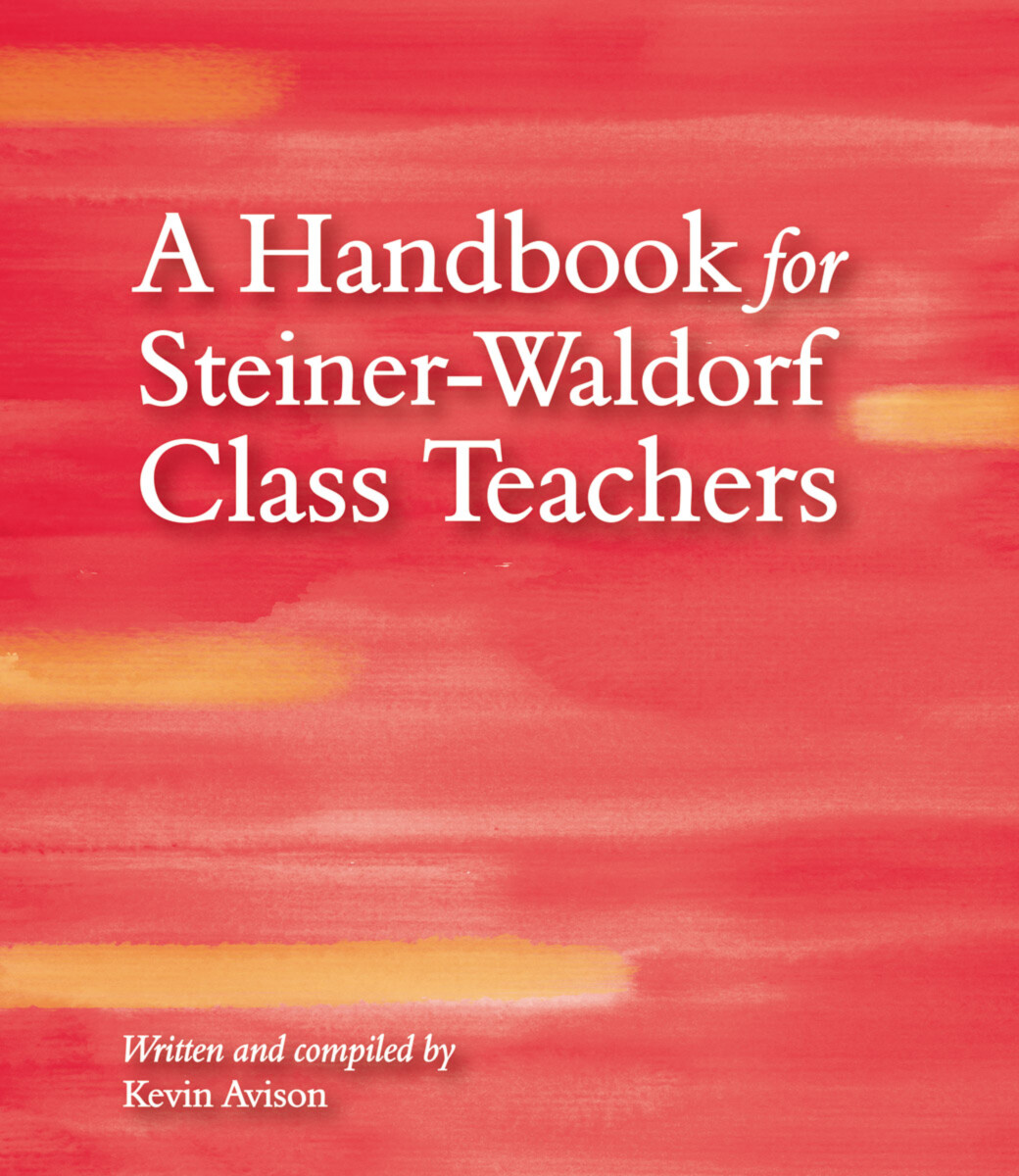A Handbook for Steiner-Waldorf Class Teachers
- Publisher
Floris Books - Published
1st May 2016 - ISBN 9781782502494
- Language English
- Pages 144 pp.
- Size 6.14" x 9.2"
This popular book is a useful and practical resource for Steiner-Waldorf teachers with detailed suggestions and checklists for teaching all lessons for Classes 1 to 8.
The extensive appendix features a compilation of planners for the Waldorf teacher's use, as well as a collection of example record tables for both students and their teachers.
Avison's often witty advice provides an interesting and easy-to-navigate handbook for creative classroom activities and management.
C O N T E N T S:
SECTION ONE
1.0 The Imponderables
1.1 Readiness for Class One
1.2 Checklist: Class One Readiness
1.3 Starting Out—Class One
1.4 Recording and Self-evaluation
1.5 Checklists for Classes One—Three
1.5.1 Numeracy
1.5.2 Form Drawing
1.5.3 Literacy
1.5.4 Other Skills
1.6 About Imitation
1.7 . . . and Circle Time
1.8 Movement Skills for Classes One—Four
1.8.1 Class One Movement Skills Checklist
1.8.2 Class Two Movement Skills Checklist
1.8.3 Classes Three and Four Movement Skills Checklist
1.8.4 Classes Four and Five Checklist
1.9 Classes Four and Five Skills Checklist
1.9.1 Numeracy
1.9.2 Literacy
1.9.3 Other skills
1.10 Classes Six and Seven Checklist
1.10.1 Numeracy
1.10.2 Geometry
1.10.3 Literacy
1.10.4 Other skills
1.10.5 Movement skills
SECTION TWO
2.0 Planning Ahead
2.1 Preparation
2.2 Readiness
2.3 Review
2.4 Rehearse
2.5 And the Fourth "R"!
2.6 The Curriculum
2.7 Curriculum and Basic Skills
2.8 Class One
2.8.1 Morning Lesson: Form Drawing
2.8.2 Morning Lesson: Stories/Literacy
2.8.3 Morning Lesson: Understanding the Natural Environment
2.8.4 Morning Lesson: Number
2.8.5 Non-Morning Lesson
2.9 Class Two
2.9.1 Morning Lesson: Form Drawing
2.9.2 Morning Lesson: Literature and Language
2.9.3 Morning Lesson: Arithmetic
2.9.4 Non-Morning Lesson
2.10 Class Three
2.10.1 Form Drawing
2.10.2 Morning Lesson: Literature and Literacy
2.10.3 Morning Lesson: Practical Activities
2.10.4 Morning Lesson: Mathematics
2.10.5 Non-Morning Lesson Subjects
2.11 A Selection of Lessons from the Curriculum for Classes Four–Eight
2.11.1 Morning Lesson: Arithmetic—Class Four Fractions
2.11.2 Morning Lesson: Human and Animal—Classes Four and Five Zoology, Botany in Class Six
2.11.3 Morning Lesson: History—Class Five
2.11.4 Morning Lesson: Physics—Classes Six and Seven
2.11.5 Morning Lesson: English—Class Seven
2.11.6 Morning Lesson: The Human Body—Anatomy and Development—Class Eight
2.12 Morning Lessons
2.12.1 Shaping the Morning Lesson
2.12.2 Elaboration of These Points
2.12.3 The “Problem” of Transitions
2.12.4 Some Ideas for “Circles”
2.12.5 Recall: Why and Some Alternative “Hows”
2.13 Parent and Teacher—Enthusiasm for Education!
2.13.1 Suggestions for Class Evenings
2.14 Of Meetings and Learnings
2.14.1 Guidelines for Child Study
APPENDICES
A Movement Skills
B Checklist: Indicators of Possible Special Learning Needs
C An Interpretive Device
D A Possible Foundation Script
E Number Orientation—to help your children face number symbols correctly
F Self-evaluation
G Planners and Record Sheets
H Record Keeping—for individual children
I When Nothing Seems to be Working
J Your Most Precious Resource—care for your voice!
K How Are Your Children Sitting?
L An Aid to Note Taking
Kevin Avison
Kevin Avison has been a teacher in both public and Steiner/Waldorf schools and is an executive officer of the Steiner Waldorf Schools Fellowship. He has two grown children, both of whom received a Waldorf education. He lives in Stourbridge, England.


